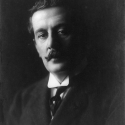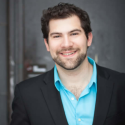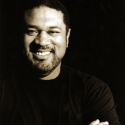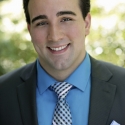Tosca

|
Giacomo PucciniComposer |
Giacomo Puccini, in full Giacomo Antonio Domenico Michele Secondo Maria Puccini, (born December 22, 1858, Lucca, Tuscany [Italy]—died November 29, 1924, Brussels, Belgium), Italian composer, one of the greatest exponents of operatic realism, who virtually brought the history of Italian opera to an end. His mature operas included La Bohème (1896), Tosca (1900), Madama Butterfly (1904), and Turandot (left incomplete).
Puccini was the last descendant of a family that for two centuries had provided the musical directors of the Cathedral of San Martino in Lucca. Puccini initially dedicated himself to music, therefore, not as a personal vocation but as a family profession. He was orphaned at the age of five by the death of his father, and the municipality of Lucca supported the family with a small pension and kept the position of cathedral organist open for Giacomo until he came of age. He first studied music with two of his father’s former pupils, and he played the organ in small local churches. A performance of Giuseppe Verdi’s Aida, which he saw in Pisa in 1876, convinced him that his true vocation was opera. In the autumn of 1880 he went to study at the Milan Conservatory, where his principal teachers were Antonio Bazzini, a famous violinist and composer of chamber music, and Amilcare Ponchielli, the composer of the opera La gioconda. On July 16, 1883, he received his diploma and presented as his graduation composition Capriccio sinfonico, an instrumental work that attracted the attention of influential musical circles in Milan. In the same year, he entered Le villi in a competition for one-act operas. The judges did not think Le villi worthy of consideration, but a group of friends, led by the composer-librettist Arrigo Boito, subsidized its production, and its premiere took place with immense success at Milan’s Verme Theatre on May 31, 1884. Le villi was remarkable for its dramatic power, its operatic melody, and, revealing the influence of Richard Wagner’s works, the important role played by the orchestra. The music publisher Giulio Ricordi immediately acquired the copyright, with the stipulation that the opera be expanded to two acts. He also commissioned Puccini to write a new opera for La Scala and gave him a monthly stipend: thus began Puccini’s lifelong association with Giulio Ricordi, who was to become a staunch friend and counselor.
After the death of his mother, Puccini fled from Lucca with a married woman, Elvira Gemignani. Finding in their passion the courage to defy the truly enormous scandal generated by their illegal union, they lived at first in Monza, near Milan, where a son, Antonio, was born. In 1890 they moved to Milan, and in 1891 to Torre del Lago, a fishing village on Lake Massaciuccoli in Tuscany. This home was to become Puccini’s refuge from life, and he remained there until three years before his death, when he moved to Viareggio. But living with Elvira proved difficult. Tempestuous rather than compliant, she was justifiably jealous and was not an ideal companion. The two were finally able to marry in 1904, after the death of Elvira’s husband. Puccini’s second opera, Edgar, based on a verse drama by the French writer Alfred de Musset, had been performed at La Scala in 1889, and it was a failure. Nevertheless, Ricordi continued to have faith in his protégé and sent him to Bayreuth in Germany to hear Wagner’s Die Meistersinger.
Puccini returned from Bayreuth with the plan for Manon Lescaut, based, like the Manon of the French composer Jules Massenet, on the celebrated 18th-century novel by the Abbé Prévost. Beginning with this opera, Puccini carefully selected the subjects for his operas and spent considerable time on the preparation of the librettos. The psychology of the heroine in Manon Lescaut, as in succeeding works, dominates the dramatic nature of Puccini’s operas. Puccini, in sympathy with his public, was writing to move them so as to assure his success. The score of Manon Lescaut, dramatically alive, prefigures the operatic refinements achieved in his mature operas: La Bohème, Tosca, Madama Butterfly, and La fanciulla del west (1910; The Girl of the Golden West). These four mature works also tell a moving love story, one that centres entirely on the feminine protagonist and ends in a tragic resolution. All four speak the same refined and limpid musical language of the orchestra that creates the subtle play of thematic reminiscences. The music always emerges from the words, indissolubly bound to their meaning and to the images they evoke. In Bohème, Tosca, and Butterfly, he collaborated enthusiastically with the writers Giuseppe Giacosa and Luigi Illica. The first performance (February 17, 1904) of Madama Butterfly was a fiasco, probably because the audience found the work too much like Puccini’s preceding operas.
In 1908, having spent the summer in Cairo, the Puccinis returned to Torre del Lago, and Giacomo devoted himself to Fanciulla. Elvira unexpectedly became jealous of Doria Manfredi, a young servant from the village who had been employed for several years by the Puccinis. She drove Doria from the house threatening to kill her. Subsequently, the servant girl poisoned herself, and her parents had the body examined by a physician, who declared her a virgin. The Manfredis brought charges against Elvira Puccini for persecution and calumny, creating one of the most famous scandals of the time. Elvira was found guilty, but through the negotiations of the lawyers was not sentenced, and Puccini paid damages to the Manfredis, who withdrew their accusations. Eventually the Puccinis adjusted themselves to a coexistence, but the composer from then on demanded absolute freedom of action.
The premiere of La fanciulla del west took place at the Metropolitan in New York City on December 10, 1910, with Arturo Toscanini conducting. It was a great triumph, and with it Puccini reached the end of his mature period. He admitted “writing an opera is difficult.” For one who had been the typical operatic representative of the turn of the century, he felt the new century advancing ruthlessly with problems no longer his own. He did not understand contemporary events, such as World War I. In 1917 at Monte-Carlo in Monaco, Puccini’s opera La rondine was first performed and then was quickly forgotten.
Always interested in contemporary operatic compositions, Puccini studied the works of Claude Debussy, Richard Strauss, Arnold Schoenberg, and Igor Stravinsky. From this study emerged Il trittico (The Triptych; New York City, 1918), three stylistically individual one-act operas—the melodramatic Il tabarro (The Cloak), the sentimental Suor Angelica, and the comic Gianni Schicchi. His last opera, based on the fable of Turandot as told in the play Turandot by the 18th-century Italian dramatist Carlo Gozzi, is the only Italian opera in the Impressionistic style. Puccini did not complete Turandot, unable to write a final grand duet on the triumphant love between Turandot and Calaf. Suffering from cancer of the throat, he was ordered to Brussels for surgery, and a few days afterward he died with the incomplete score of Turandot in his hands.
Turandot was performed posthumously at La Scala on April 25, 1926, and Arturo Toscanini, who conducted the performance, concluded the opera at the point Puccini had reached before dying. Two final scenes were completed by Franco Alfano from Puccini’s sketches.
Solemn funeral services were held for Puccini at La Scala in Milan, and his body was taken to Torre del Lago, which became the Puccini Pantheon. Shortly afterward, Elvira and Antonio were also buried there. The Puccini house became a museum and an archive.

|
Steven WhiteConductor |
Praised by Opera News as a conductor who “squeezes every drop of excitement and pathos from the score,” Steven White is one of North America’s premiere operatic and symphonic conductors. He made his acclaimed Metropolitan Opera debut in 2010, conducting performances of La traviata starring Angela Gheorghiu. Since then he has conducted a number of Metropolitan Opera performances of La traviata, with such stars as Natalie Dessay, Hei-Kyung Hong, Plácido Domingo, Thomas Hampson, Dmitri Hvorostovksy and Matthew Polenzani. In the past several seasons he has returned to the Met to participate in critically fêted productions of Don Carlo, Billy Budd, The Rake’s Progress and Elektra.
With a vibrant repertoire of over sixty-five titles, Maestro White’s extensive operatic engagements have included performances with New York City Opera, L’Opera de Montréal, Vancouver Opera, Opera Colorado, Pittsburgh Opera, Michigan Opera Theater, Baltimore Opera, New Orleans Opera, and many others. In recent seasons he has conducted Rigoletto with San Diego Opera, Otello with Austin Opera, La traviata with Utah Opera, and a world premiere staged production of a brand-new Bärenreiter edition of Gounod’s Faust with Opera Omaha. In the 2021-2022 season, he returns to the Metropolitan Opera for their production of Tosca, which he also conducts for Utah Opera. With Opera Omaha he conducts Eugene Onegin, and he returns to Opera Roanoke for Bluebeard’s Castle in the fall and Verdi’s Requiem in the spring.
In 2020 the COVID-19 pandemic necessitated the cancellation of his eleventh production at Arizona Opera, Ariadne auf Naxos, as well as the company premiere of André Previn’s A Streetcar Named Desire at Opera Roanoke. Other projects in the 2020-21 season COVID-impacted season included a reimagined Rigoletto with Tulsa Opera at Tulsa’s ONEOK Field, and Le nozze di Figaro in a return to Opera Omaha (postponed).
Music critics are effusive in their praise of conductor Steven White’s ability to elicit inspired music-making from orchestras. Of his 2016 performances with the Omaha Symphony, the Omaha World-Herald asserts that, “it would be hard to imagine a more complete performance of the Symphonie Fantastique. Highly nuanced, tightly controlled and crisp, Steven White asked everything from orchestra members and they were flawless. He led them out of serene beauty into disturbing dissonance and even to the terrifying point of musical madness without ever losing control. It was insanely good.” Opera News declares, “White is amazing: he consistently demands and gets the absolute best playing from the orchestra.”
Among the many orchestras Maestro White has conducted are the Metropolitan Opera Orchestra, the Moscow Philharmonic, the Orchestre Métropolitain du Grand Montréal, the Mozarteum und Salzburg KulturvereinigungOrchestra, the Baltimore Symphony Orchestra, the New World Symphony Orchestra, the Spoleto Festival Orchestra, the Colorado Symphony, the Nashville Symphony Orchestra, the Columbus Symphony Orchestra, the Charleston Symphony, the Florida Philharmonic, the Fort Worth Symphony and London’s Philharmonia Orchestra for a CHANDOS recording of arias featuring his wife, soprano Elizabeth Futral. In 2019 he made debuts with the San Diego Symphony, the Utah Symphony Orchestra and the Williamsburg Symphony Orchestra.
Maestro White is a passionate and dedicated educator. He has served multiple artistic residencies and led productions at such institutions as the Peabody Conservatory of Music, Indiana University, the College Conservatory of Music at the University of Cincinnati, the University of Miami Frost School of Music Program in Salzburg, Kennesaw State University and Virginia Tech University. In the summer of 2019 he served as an artist in residence at the Shanghai Conservatory in China and in 2020 he led a critically acclaimed production of La clemenza di Tito for the North Carolina School of the Arts Fletcher Opera Institute. He is in constant demand as an adjudicator of the most prestigious music and vocal competitions, including numerous auditions for the Metropolitan Opera National Council and the Jensen Foundation.
Steven White proudly makes his home in Virginia, where he serves as Artistic Director of Opera Roanoke, a company with which he has been associated for two decades. Maestro White has conducted dozens of productions in Roanoke, including performances of Das Lied von der Erde, Der fliegende Holländer, Fidelio, Falstaff, Otello, Macbeth, Aida, Hänsel und Gretel and many others. In recognition of his contributions to the civic, cultural and artistic life of Southwest Virginia, Roanoke College conferred on Maestro White an Honorary Doctorate of Fine Arts in May 2013.

|
Tara FairclothDirector |
Stage Director Tara Faircloth’s work has been seen in opera houses around the nation. Critics hailed Faircloth's recent directorial debut at Lyric Opera of Chicago: a “wickedly funny, elegantly sung, cleverly directed production of Rossini’s The Barber of Seville.” In recent seasons, Faircloth created new productions of The Little Prince (Utah Opera), Ariadne auf Naxos (Wolf Trap Opera), Il re pastore (Merola Opera), Agrippina (Ars Lyrica Houston), and The Coronation of Poppea (Boston Baroque).
The 2021/22 Season found Faircloth working on several new productions, including Emmeline with Tulsa Opera, La Traviata at Opera Santa Barbara and The Merry Wives of Windsor with The Juilliard School, as well as a program with Ars Lyrica Houston entitled “Eternity and the Underworld” which paired Jonathan Dove’s The Other Euridice and Bach’s Ich habe genug. In addition, Faircloth revisited her old favorite The Barber of Seville in a debut at The Dallas Opera.
Faircloth has a thriving career in regional houses such as Utah Opera, Wolf Trap Opera, Arizona Opera, Tulsa Opera, and Atlanta Opera (The Barber of Seville, Rigoletto, The Magic Flute, Hansel and Gretel, etc.). The baroque repertoire is of special interest to Faircloth, who made her directorial debut with Ars Lyrica Houston’s production of Cain: Il primo omicidio in 2003 and has since designed and directed a number of shows for the company including Charpentier’s Actéon and La descente d’Orphée aux enfers. Faircloth created productions of Dido and Aeneas for Ars Lyrica at the Festival di Musica Barroca in San Miguel de Allende, Mexico, and for Mercury Baroque in collaboration with the Dominic Walsh Dance Theater.
Recent seasons for Faircloth have included new productions of Il re pastore with Merola Opera, Agrippina with Ars Lyrica Houston, The Little Prince with Utah Opera, The Coronation of Poppea with Boston Baroque, Eugene Onegin with Arizona Opera, and Britten’s A Midsummer Night’s Dream with Boston University. Additionally, Faircloth has directed new productions of Madame Butterfly with Wolf Trap Opera, L’enfant et les sortileges with Utah Symphony & Opera, Don Giovanni with Arizona Opera, and a reconfiguration of her 2014 Wolf Trap Carmen for Arizona Opera.
Faircloth has worked extensively on the directing staff of such companies as Lyric Opera of Chicago, Houston Grand Opera, Central City Opera, and Dallas Opera, and as such, has worked on some of the most complicated operas in the repertoire, assisting international directors and preparing cover casts of some of the best performers in our industry. Passionate about dramatic training for young singers, Faircloth is the Drama Instructor for the Houston Grand Opera Studio and HGO's Young Artists’ Vocal Academy and has served as a guest coach at Wolf Trap Opera Studio, Des Moines Metro Opera, University of Michigan, and Rice University. Faircloth splits her time between Austin and Houston, Texas, where she enjoys restoring her 1935 Craftsman Bungalow.

|
Kara Shay ThomsonFloria Tosca 11/11, 11/17 & 11/19 |
Dramatic soprano, Kara Shay Thomson continues to build her expansive stage career by creating characters that push the limits both musically and dramatically and this year is no exception.
In the 2017-18 season Ms. Thomson will debut 3 new roles beginning with Marta in the rarely performed work, Tiefland, by Eugene d’Albert for Sarasota Opera, the title role in Cherubini’s Medea for Opera Omaha and Turandot for Dayton Opera. She will make her company debut as Tosca for Arizona Opera and return to Dayton Opera again as Magda Sorel in The Consul.
Ms. Thomson’s 2016-17 engagements included joining Lyric Opera of Chicago for its production of Berlioz’ Les Troyens, Agäthe in Virginia Opera’s production of Der Freishütz and Tosca with Intermountain Opera.
Recent engagements include Tosca with Sarasota Opera, Kentucky Opera, Dayton Opera, Atlanta Opera, Florida Grand Opera, Portland Opera and Utah Opera. She has performed Leonore in Beethoven’s Fidelio and the role of Santuzza with Kentucky Opera and Sarasota Opera, Judith in Bluebeard’s Castle with New Millenium Orchestra of Chicago and Opera Omaha. Ms. Thomson gained critical acclaim for her portrayal of Magda Sorel in Menotti’s The Consul for Florida Grand Opera.
Other recent successes include performing The Woman in Schoenberg’s Erwartung with New York City Opera; the title role in Barber’s Vanessa with Sarasota Opera; Tosca with Central City Opera and Santa Fe Opera; Zemfira in Rachmaninoff’s Aleko with Cincinnati May Festival; Donna Anna in Don Giovanni with Opera North; Marietta in Die tote Stadt with Washington, DC’s Summer Opera Theatre Company and both the Female Chorus in The Rape of Lucretia and Miss Jessel in Turn of the Screw with Chicago Opera Theater.
Concert highlights include Soprano Soloist in Beethoven’s Symphony No. 9 with National Chorale at Lincoln Center’s Avery Fisher Hall; Dvořák’s Te Deum with Cincinnati May Festival; Strauss’ Vier letzte Lieder with Amherst Symphony and Rachmaninoff’s The Bells at Ravinia Festival.

|
Marcy StonikasFloria Tosca 11/12 & 11/18 |
Marcy Stonikas is a graduate of Roosevelt University’s Chicago College of Performing Arts (CCPA) and Oberlin College Conservatory of Music. A graduate of the Young Artist Program at Seattle Opera, she performed the roles of Donna Anna in Don Giovanni, Fiordiligi in Così fan tutte, and the title role in Ariadne auf Naxos, whilst a member of the program. She was First Prize winner in the Wagner Division of the 2013 Gerda Lissner Foundational Vocal Competition, and was a finalist in Seattle Opera’s 2014 International Wagner Competition.
Ms. Stonikas’ 2016/17 season holds anticipated role and company returns, and company debuts. She begins the season as Gertrude in Seattle Opera’s Hansel and Gretel, then sings the titular Turandot in debuts with Atlanta Opera and Opera Naples. During the summer of 2017, she essays a title role with the Berkshire Opera Festival.
Last season’s performances included a significant company debut with Washington National Opera in their critically praised Ring Cycle, singing Gerhilde in Die Walküre and Third Norn in Götterdämmerung. The 2015-2016 season also included Beethoven’s Ninth Symphony with the San Antonio Symphony, and Donna Anna in Don Giovanni with Opera Santa Barbara.
Ms. Stonikas’ 2014/15 season, showed performances with the West Australian Symphony Orchestra for Beethoven’s Symphony No. 9, conducted by Asher Fisch. She then returns to the Volksoper Vienna, for Leonore in Fidelio, and to Seattle Opera for the title role in Ariadne auf Naxos. She concludes the season with Cincinnati Opera, as the title role in Turandot.
During the 2013/14 season, Ms. Stonikas appeared with Utah Opera in a role debut as Salome; Opera Santa Barbara as Tosca; in a return to Seattle Opera as Magda Sorel in Menotti’s The Consul; and the Vienna Volksoper for Fidelio.
During the 2012/13 season, Ms. Stonikas debuted the title roles in productions of Turandot and Fidelio at Seattle Opera, to great acclaim. Additionally this season, she performed a recital under the auspices of the Wolf Trap Opera Company.
Over two summers, the soprano performed Donna Anna in Don Giovanni, Antonia in The Tales of Hoffmann, and Rosaura in Wolf-Ferrari’s rarely performed Le donne curiose, with Wolf Trap Opera Company. Additionally, Ms. Stonikas had the unique opportunity to perform the roles of Irene and Mary in the American premiere of Jerry Springer – the Opera (Thomas) at the Bailiwick Repertory Theatre in Chicago. On the concert stage, highlights include Blumenmädchen in Parsifal (Wagner) with the Cleveland Orchestra, conducted by Pierre Boulez
Ms. Stonikas is a recipient of the Richard F. Gold Career Grant from the Shoshana Foundation, winner of the 2009 Elgin Opera Vocal Competition, and was a winner of the 2006 International Meistersinger Competition.

|
Rafael DavilaMario Cavaradossi 11/11, 11/17 & 11/19 |
Tenor Rafael Davila has quickly risen to be one of the most sought-after tenors of his generation. With more than 60 roles already under his belt, he has been invited by Maestro Placido Domingo to sing the operas Norma and La Forza del Destino for Washington National Opera, Tosca for Los Angeles Opera and Manon Lescaut for Opera de Valencia in Spain under Mo Domingo's conducting.
This year marked his debut with the Metropolitan Opera in New York as Don Jose in Carmen with great critical acclaim followed by invitations by the company to be part of the roster for the next two seasons. Other engagements during the past season included La Fanciulla del West with Michigan Opera Theater, Carmen and Un Ballo in Maschera for Florida Grand Opera, as well as the title role in Verdi's Otello with Teatro de la Opera in PR.
This upcoming season finds Mr Davila singing the role of Cavaradossi in Tosca for Opera de Puerto Rico and Arizona Opera, Turandot for the Lyric Opera of Chicago, his debut as Verdi's Don Carlo with Washington National Opera and his debut in the prestigious Liceu de Barcelona in Spain as Des Grieux in Puccini's Manon Lescaut.
Other recent engagements include La Fanciulla del West and Carmen for Minnesota Opera, Tosca in Leipzig, Germany, his return to Washington Opera as Don Jose in Carmen, Pinkerton in Madama Butterfly opposite soprano Ana María Martínez for Opera de Puerto Rico, his debut with the Lyric Opera of Chicago in the world premiere of the opera Bel Canto, return to Valencia as Radames in Verdi’s Aida, appeared at the historic Macerata Festival in Italy as Turiddu in Cavalleria Rusticana and as Canio in Pagliacci and returned to Lyric Opera of Kansas City as Don Jose in Carmen after previously appearing with the company in the operas Tosca, Norma and Il Trovatore.
The 2014-15 season marked the tenor’s return to the historic Teatro San Carlo in Naples, Italy as Canio in I Pagliacci and as Turiddu in Cavalleria Rusticana after his debut with the company in 2004 in the title role of Verdi’s Gustavo III (Riccardo in Un ballo in Maschera). That same season also marked his debut with Florida Grand Opera as Cavaradossi in Tosca. Prior to that Mr. Dávila made his debut as Radames in Aida for Manitoba Opera in Canada.
In 2012, he made his debut in the title role of Verdi’s Otello for Sarasota Opera and as Manrico in Il Trovatore for Opera New Jersey and Kansas City Opera.
Abroad Mr Davila made his debut as Rodolfo in Puccini’s La Boheme for the Netherlands Reisopera, and for the New Zealand Opera as Don Jose in Carmen and as Alfredo in La Traviata. He made his debut as Calaf in Puccini’s Turandot for Connecticut Grand Opera, a role he also sang for the National Lyric Opera of New York, and Opera de Puerto Rico, and sang the premiere of the opera Time and Again Barelas with the New Mexico Symphony Orchestra.
His concert experience includes Verdi’s Requiem, Rossini’s Stabat Mater, Bach’s Magnificat, Mahler’s Das Lied von der Erde, Beethoven’s Ninth Symphony (for the prestigious Casals’ Festival), Mozart’s Coronation Mass and Requiem and Estevez’ Cantata Criolla with The Seattle Symphony Orchestra. His recordings of Ariel Ramírez’ Misa Criolla as well as another recording of the operetta Cofresí by Rafael Hernández were both nominated for a Grammy Award.

|
Marco CammarotaMario Cavaradossi 11/12 & 11/18 |
Marco Cammarota has been involved in the arts world for nearly fifteen years. Cammarota studied and performed opera for over a decade at prestigious companies throughout the United States and Europe prior to formally leaving the stage to focus on other endeavors and explore what else was possible. This pursuit led Cammarota to voiceover where he has built a successful business over the last three years and had the good fortune to work with clients such as: Ikea, IBM, Dell, Carnival Cruise, and others. Cammarota has had the pleasure of working a great deal in the eLearning space due to his warm, conversational, and friendly tone.
Having never lost touch of his love of music in 2022, Cammarota sought to combine his passion for music with his love of video games by creating a Youtube channel around these two things. This endeavor led to a life changing shift. Within eight months Cammarota received the coveted Youtube Silver play button and his videos about the power of video game music and his evangelizing of opera have been seen by nearly 30,000,000 people. Cammarota is projected to gain 1,000,000 subscribers in just short of two years. All the while, Cammarota has kept his voiceover career in full swing, auditioning, and winning jobs in radio, new media, and video games.

|
Gordon HawkinsScarpia 11/11, 11/17 & 11/19 |
Gordon Hawkins is critically acclaimed throughout the world for his in-depth interpretations and lush baritone voice. A dramatic baritone with an international reputation as a “Rigoletto specialist,” Hawkins has delighted audiences as the tragic Verdi underdog in more than 200 performances, most recently with the Deutsche Oper am Rhein, Vancouver Opera, Washington National Opera, Arizona Opera, and Opera Colorado. He is now earning critical acclaim as a Wagner specialist: “Alberich was superbly realized by baritone Gordon Hawkins, in his [Los Angeles Opera] début. Despite wearing a grotesque puppet head and clunky boots that hobbled his movements, Hawkins delivered a sterling vocal characterization of the power-mad Nibelung.” (Opera News). He has been engaged as Alberich in Wagner’s Der Ring des Nibelungen at esteemed international companies including San Francisco Opera, Los Angeles Opera, Seattle Opera, Washington National Opera, Deutsche Oper Berlin, Teatro de la Maestranza de Sevilla, and the BBC Orchestra at Royal Albert Hall in London.
Last season saw Hawkins return to the Lyric Opera of Chicago for the World Premiere of Proximity, a project he assisted in creating during its workshop, as well as perform the role of Tonio in Pagliacci with San Antonio Opera. This season, Hawkins makes his role début as Alphonse in Frankenstein with Arizona Opera and joins New Orleans Opera to reprise his Reverend in Blue.
In recent seasons, Hawkins performed the role of the Reverend in the World Premiere of Jeanine Tesori and Tazewell Thompson’s Blue at the Glimmerglass Festival, which was received to rave reviews. He also recorded the piece with Washington National Opera, which was released in March of 2022, with critic Ralph P. Lock saying, “The one big name in the cast is Gordon Hawkins, a world-renowned Porgy, Rigoletto, and Alberich, who here establishes a rock-solid presence as The Reverend." He reprised the role in the 2021/22 Season with Detroit Opera, Toledo Opera, Pittsburgh Opera, and Seattle Opera.
Hawkins’ career is shaped by performances of opera’s most popular baritone roles at leading companies throughout the world. With an impressive repertoire under his belt, some of his prominent roles include Amonasro in Aïda which he has performed with Lyric Opera of Chicago, Washington National Opera, Houston Grand Opera, Seattle Opera, Cincinnati Opera, Detroit Opera, and The Atlanta Opera; Scarpia in Tosca which he has performed with Cincinnati Opera, Lyric Opera of Kansas City, Vancouver Opera, Portland Opera, and Arizona Opera; as well as title roles such as Nabucco with Seattle Opera and Opera Carolina and Macbeth also with Seattle Opera. Additional favored engagements have included Thoas in Iphigénie en Tauride with Metropolitan Opera; The Warden in Dead Man Walking with Lyric Opera of Chicago; Alvaro in Florencia en el Amazonas with Los Angeles Opera; Alfio in Cavalleria rusticana with Washington National Opera; Count di Luna in Il trovatore with Seattle Opera; Tonio in Pagliacci with Arizona Musicfest; and Renato in Un ballo in maschera with New Orleans Opera and Opéra de Montréal.
Internationally, Hawkins has performed at venues such as Deutsche Oper Berlin as Telramund in Lohengrin, Teatro de la Maestranza in Seville as Caspar in Der Freischütz, and New National Theatre Tokyo as the Villians in Les contes d’Hoffmann.
One of his signature roles, Porgy in Gershwin’s Porgy and Bess has brought him to some of the most esteemed companies and symphonies in the world, including The Lyric Opera of Chicago, Washington National Opera, Seattle Opera, Detroit Opera, Dallas Opera, Cincinnati Opera, Toledo Opera, Colorado Symphony, San Francisco Symphony, San Francisco Opera, Jacksonville Symphony, Festspillene i Bergen in Norway, and the Sinfonieorchester St. Gallen.
An accomplished concert artist, some favorite engagements of recent seasons include a Gala Concert for Justice Ruth Bader Ginsberg in Washington DC; a recital entitled War and Remembrance at The Clarice Center for the Performing Arts; Amonasro in Aida with St. Louis Symphony; Vaughan Williams’ A Sea Symphony with The Washington Chorus at the Kennedy Center; the world première of Jake Heggie’s A Great Hope Fell with the Eos Orchestra of New York; Beethoven’s Symphony No. 9 with The Atlanta Symphony and St. Louis Symphony; concert selections from American musicals with Welle WDR 4 in Cologne, Germany; and additional repertoire with the Chicago Symphony, National Symphony, the Baltimore Symphony, The Cincinnati Orchestra, National Theatre Orchestra of Prague, and Vienna Symphony.
Hawkins has been heard on the Live BBC Radio broadcast as Alberich in Götterdämmerung with the BBC Symphony Orchestra at the Royal Albert Hall and “Live from the Metropolitan Opera” broadcasts earlier in his career as Marcello in La Bohème with Plácido Domingo and Mirella Freni, and Silvano in Un ballo in maschera with Luciano Pavarotti and Aprile Millo. He can be heard as George Milton on the first recording of Carlisle Floyd’s Of Mice and Men with the Houston Grand Opera on Albany Records and the recording of Simon Boccanegra as the title role with the New Zealand International Festival of the Arts.
Hawkins was a winner of the Metropolitan Opera National Council Auditions and the Luciano Pavarotti International Vocal Competition and was awarded the Washington National Opera’s “Artist of the Year” award.

|
Aleksey BogdanovScarpia 11/12 & 11/18 |
Ukrainian-born American baritone Aleksey Bogdanov continues to establish himself as one of the most compelling performers of his generation. Bogdanov’s 2022/23 Season includes returns to Maryland Lyric Opera for Renato in Un ballo in maschera, Odyssey Opera for a trio of one-act Rachmaninoff operas, and a debut with San Diego Symphony in Verdi’s Messa da Requiem. Last season, he made his debut at The Metropolitan Opera as Shchelkalov in Boris Godunov. Other engagements last season included a debut with Nashville Opera as Rigoletto and a debut at the Royal Swedish Opera as Jack Rance in La fanciulla del West.
In the 2020/21 Season, Bogdanov appeared as Rigoletto with Central City Opera, Scarpia in Tosca with Austin Opera, and Crespel in Les Contes d'Hoffmann at the Gran Teatre del Liceu in Barcelona.
In the 2019/20 Season, he appeared as Pasha Seid in Il corsaro at the 15th-annual "Chopin and his Europe" Festival, Amonasro in Aida with Boston Youth Symphony Orchestra, and Scarpia in Tosca with Hawaii Opera Theatre. Additionally, he returned to Tulsa Opera as Sharpless in Madama Butterfly and Chicago Opera Theater as Beck Weathers in Everest and the title role of Aleko. Concert appearances included Schoenberg Gurre-Lieder with KBS Symphony Orchestra, Verdi Requiem with the Colorado Symphony, and Handel's Messiah with the Richmond Symphony.
In the 2018/19 Season, he returned to Washington National Opera as Lt. Horstmayer in Silent Night and covered Scarpia in Tosca and the title role in Eugene Onegin. Additionally, he made his debut with Maryland Lyric Opera as Jack Rance in La fanciulla del West and Chicago Opera Theater as Starbuck in Moby Dick.
In the 2017/18 Season, he made his debut with the San Francisco Symphony as Andrei Shchelkalov in Boris Godunov, conducted by Michael Tilson Thomas. Additionally, he appeared with Arizona Opera as Scarpia in Tosca, Sarasota Opera as Sebastiano in d'Albert's rarely-heard Tiefland, Lionel in Tchaikovsky's Maid of Orléans with Odyssey Opera in Boston, Four Villains in Les Contes d'Hoffmann with Opera North in New Hampshire, and covered the title role in Demon with Gran Teatre del Liceu in Barcelona.
In the 2016/17 Season, he made his role debut as Jack Rance in La fanciulla del West with Opera Carolina, Scarpia in Tosca with Opera North, Demon with Commonwealth Lyric Theater, Escamillo in La tragédie de Carmen with Colorado Music Festival, Nourabad in Les pêcheurs de perles with Tulsa Opera, and Vitellius in Hérodiade with Washington Concert Opera.
In the 2015/16 Season, he appeared with Washington National Opera as Escamillo in Carmen, Peter in Hansel and Gretel, created Governor George Wallace in the revised version of Appomattox, and covered Donner and Gunther in Francesca Zambello's Ring Cycle. Praised as "pitch-perfect" by The Washington Post, his many roles in over 100 performances with WNO from 2009 to 2016 include Mozart’s Figaro, Don Giovanni and Guglielmo, Belcore in L'elisir d'amore, Sharpless in Madama Butterfly, Silvano in Un ballo in maschera, and the Jailer in Dialogues of the Carmelites.
Bogdanov made a last-minute debut at The Glimmerglass Festival as Escamillo in Carmen to great acclaim, and he has appeared in this signature role with The Atlanta Opera, Washington National Opera, Opera Theatre of Saint Louis, and Columbus Symphony Orchestra. He returned to The Glimmerglass Festival as Sharpless in Madama Butterfly and Samuel Griffiths in Tobias Picker's An American Tragedy. He also appeared in the US premiere of Tarik O'Regan's Heart of Darkness with Opera Parallèle.
Other career highlights include his Canadian debut as Eugene Onegin with Edmonton Opera, and his Carnegie Hall debut as Bass Soloist in Handel's Messiah. He has been featured as a soloist in Mozart's Requiem at Place des Arts in Montréal, Beethoven's Fidelio with National Symphony Orchestra, Barber's A Hand of Bridge with Baltimore Symphony Orchestra, Castelnuovo-Tedesco's Romancero Gitano at Palau de les Arts Reina Sofia and Teatro Baretti di Torino, Dvořák's Te Deum and Janáček's Glagolitic Mass at Basilica of the National Shrine, and the Requiems of Mozart, Fauré, and Duruflé at the Washington National Cathedral. He has performed at the United States Supreme Court and CIA Headquarters, and he has sung the national anthem for the San Francisco Giants and the Washington Nationals.
Born in 1983 in Odessa, Ukraine, Bogdanov immigrated to San Francisco in 1992. He made his professional debut in 2008 with OTSL in William Walton's Troilus and Cressida. He is an alumnus of Washington National Opera's Domingo-Cafritz Young Artist Program, Indiana University, and University of California Santa Cruz. He is a grand prize winner of the Florida Grand Opera Competition, a two-time winner of the Metropolitan Opera National Council District Awards, and a Career Grant recipient from The Sullivan Foundation, The Shoshana Foundation, Pasadena Opera Guild, and San Francisco Opera Merola Program.

|
Zachary OwenAngelotti, Jailer |
Born and raised in Illinois, American bass-baritone Zachary Owen has performed with such companies as the Glimmerglass Festival, Arizona Opera, Cincinnati Opera, Kentucky Opera, Des Moines Metro Opera, Central City Opera, Opera North, Opera Theatre of Saint Louis, and Opera Santa Barbara.
He has performed the roles of Dulcamara in Elixir of Love, Alidoro in La Cenerentola, Ashby in La fanciulla del West, Don Fernando in Fidelio, Matouš in Smetana’s The Kiss, Figaro in The Marriage of Figaro, Haly in L’italiana in Algeri, Nick Shadow in The Rake’s Progress, Frank Maurrant in Street Scene, the Commendatore in Don Giovanni, der Sprecher in The Magic Flute, Spencer Coyle in Owen Wingrave, and the title role in Don Pasquale. A strong advocate for new music, he has participated in a composer’s workshop at Cincinnati Opera in which he worked alongside Jake Heggie, Jack O’Brien, and Terrence McNally to develop two characters for Heggie’s new Opera, Great Scott. In the 2017/18 season, Mr. Owen will be returning to the Marion Roose Pullin Studio at Arizona Opera and performing several roles including Don Basilio in The Barber of Seville, Angelotti in Tosca, and Lycos in Hercules vs Vampires.
Mr. Owen is the recipient of numerous awards including the Grace Keagy Award at the Lotte Lenya Competition, the Brudos Family Prize for Opera Performance and was a national semifinalist at the 2015 Metropolitan Opera National Council Competition. He holds a bachelor’s degree from Luther College in Decorah Iowa and a master’s degree from the University of Cincinnati College-Conservatory of Music.

|
Ricardo LugoSacristan |
With a “resonant” bass sound Puerto Rican bass Ricardo Lugo is a versatile international artist in demand on the operatic and concert scene. Having made his Metropolitan Opera debut as Un Barnabotto in La Gioconda, Ricardo has since been involved in multiple productions with the company including Shostakovich’s The Nose, Ariadne auf Naxos, Khovanshchina, Billy Budd, La fanciulla del West, Adriana Lecouvreur, Macbeth, The Gambler, and Salome. In recent seasons, Mr. Lugo has joined Michigan Opera Theater as Timur in Turandot, Alfieri in Bolcom’s A View from the Bridge, and Don Fernando in Fidelio and has sung Dulcamara in Elixir of Love with Opera Memphis, Mr. Page in The Merry Wives of Windsor with Boston Midsummer Opera, the Sacristan in Tosca and Bartolo in The Marriage of Figaro with Sarasota Opera, and Bartolo in The Marriage of Figaro with the Princeton Festival.
Last season saw Mr. Lugo’s return to The Metropolitan Opera for productions of Otello, Tannhäuser, Tosca, Turandot, Manon Lescaut, and Madama Butterfly. In the 2016/17 season, he will debut with the America Symphony Orchestra as Wachtmeister/Der Holsteiner in Richard Strauss’ Friedenstag, return to Michigan Opera Theater as the French General in Silent Night, debut with Virginia Opera as Timur in Turandot, and return to The Metropolitan Opera for Salome.

|
Anthony CiaramitaroSpoletta |
Tenor Anthony Ciaramitaro, a Florida native, is currently pursuing his Master’s degree at Florida State University under David Okerlund, and has recently performed the role of Don Ramiro in Rossini’s La Cenerentola with Florida State Opera.
Mr. Ciaramitaro had the privilege to perform as a Studio Artist with Wolf Trap Opera during their 2015 season as Basilio from Mozart's The Marriage of Figaro, The Messenger from Verdi's Aida, and among the ensemble of Corigliano's The Ghosts of Versailles.
In previous seasons, Mr. Ciaramitaro made his professional debut with Florida Opera Theater as Ferrando in Mozart's Così fan tutte, the 2nd trio member in Leonard Bernstein's Trouble in Tahiti, Piquillo from Jacques Offenbach's La Perichole with the Franco-American Vocal Academy in Perigueux, France, and scenes from Verdi's La forza del destino, La Traviata and Mozart's Don Giovanni in Oberaudorf, Germany with Music Theater Bavaria.
Mr. Ciaramitaro graduated in 2014 with his Bachelor's in music from Rollins College, where he studied under Richard Owens, who has been a great inspiration to the advancement of his career. Mr. Ciaramitaro has been a concert soloist for The Bach Festival Society of Winter Park, The Messiah Choral Society, and The Villages Philharmonic.
Mr. Ciaramitaro has an avid love of the stage and is eager to one day have an illustrious career as a singer of opera, oratorio, and concert repertoire.

|
Jarrett PorterSciarrone |
Praised for his “imposing baritone” and “supple vibrant baritone that he deploys with unaffected lyricism and manifest honesty” by Opera News, American baritone Jarrett Porter is quickly making a name for himself with a fearless talent and commanding intellect. Porter is currently a member of the Artist Diploma in Opera Studies at The Juilliard School.
In the 2020/21 Season, Jarrett makes his professional debut at Opera Theatre of Saint Louis as Neil Armstrong in the world premiere of Steve Mackey’s Moon Tea, and as the Adjudicator in the world premiere of Damien Sneed’s The Tongue & The Lash. He joins Internationale Meistersinger Akademie in Neumart, Germany where he will make appearances on Bavaria Radiofunk, as well as with the Nürnburg Symphony. At Juilliard, he appears in their Liederabend series, with New York Festival of Song@Juilliard, and as Polyphemus in Händel’s Acis & Galatea with Juilliard415.
In the 2021/22 Season he looks forward to making his professional debut at Arizona Opera as Guglielmo in Così fan tutte. He will return to Opera Theater of Saint Louis to create the role of Oliver Sacks in the world premiere of Tobias Picker’s Awakenings, based on the memoir of the same name.
Porter’s 2019/20 Season included his principal debut at Tulsa Opera as Dancaïre in Carmen. At the Santa Fe Opera in his second year as an Apprentice, he sang the Sergeant in La boheme, covered Guglielmo in Così fan tutte, appeared in scenes as the title role in Il barbiere di Siviglia, and joined Renée Fleming and the Santa Fe Opera Orchestra under the baton of Harry Bicket as a soloist in Vaughan Williams’ Serenade to Music.
In the 2018/19 Season he finished his second and final year as a Marion Roose Pullin Studio Artist at Arizona Opera, where he performed as Antonio and the cover of Count Almaviva in Le nozze di Figaro, Father Palmer in Silent Night, and Baron Douphol in La traviata. In the 2017/18 Season at Arizona Opera, he was seen as the title role in Patrick Morganelli’s Hercules vs. Vampires, Maximilian in Candide, Sciarrone in Tosca, and Fiorello in Il barbiere di Siviglia. He joined Santa Fe Opera in 2018 as a member of the company’s Apprentice Program, singing Der Perückenmacher in Ariadne auf Naxos, and covering Maximilian in Candide. Role engagements elsewhere have included the title role of Don Giovanni and Eugene Onegin, Le Chevalier des Grieux in Massenet’s Le portrait de Manon, Sid in Albert Herring, Harry Easter in Weill’s Street Scene, and Morales in Carmen. Other programs include Opera Saratoga (2016) and The Glimmerglass Festival (2017), as well as Houston Grand Opera’s Young Artist Vocal Academy (2014).
As a sought after recitalist, Porter has held fellowships at the Ravinia Stean’s Music Institute at The Ravinia Festival, and at SongFest at the Hidden Valley Music Festival under the mentorship of Sir Thomas Allen and Graham Johnson. Accompanied by narration from Allen and Johnson, he made his National Public Radio debut with selections from Schubert’s Die schöne Müllerin and Winterreise, and in the spring of 2018 joined pianist Taylor Hutchinson in recital to present Winterreise in Katzin Hall at Arizona State University.
Awards include: winner of The Sullivan Foundation (2019), winner of the 2019 St. Louis District of the Metropolitan Opera National Council, the Lisa and Bernie Kalvelage Award at the 2018 Holt Competition, the 2017 Grand Prize Winner of the Pacific Music Society Competition, the Ellie Silver Award Winner at the 2017 Holt Competition, and the First Prize of the inaugural Esther C. Weill Competition. A native of coastal New Jersey, he holds a Bachelor of Music degree from the Eastman School of Music (2015) and a Master of Music from the San Francisco Conservatory of Music (2017), where he was a James Schwabacher Fellow. He can be seen in the June 2020 issue of Opera News, where he was the magazine’s Soundbite. A student of Darrell Babidge, Porter resides on the Upper East Side in New York City.

|
Katrina GalkaShepherd Boy |
The Oregonian praises soprano Katrina Galka for her recent performances of Adina in L’elisir d’amore, exclaiming that she “looked like a young Glenn Close, projecting power over Nemorino as she thrilled with fine coloratura filigree and pure high notes.” In the 2020/21 Season, she makes her role and company debut as Olympia in Les contes d’Hoffmann at the Opernhaus Zürich as well as sings a solo digital recital for Portland Opera. Her San Francisco Opera debut as Janine (Ofwarren) in Ruder’s The Handmaid’s Tale was unfortunately cancelled by the COVID-19 pandemic, as were the roles she added to her repertoire last season: Zerbinetta in Ariadne auf Naxos and the Charmeuse in Thais for performances at Arizona Opera and Utah Opera. In the first half of last season, she returned to the Wiener Staatsoper to reprise Fritzi in Staud’s Die Weiden following her debut with the company in the work’s world premiere in the season prior. She sang her first performances of the Controller in Dove’s Flight with Minnesota Opera and returned to the Las Vegas Philharmonic for Handel’s Messiah.
Galka recently role and company debuts as Blondchen in Die Entführung aus dem Serail with Atlanta Opera—followed by reprisals at New Orleans Opera and Opera San Jose, Atalanta in Xerxes at the Glimmerglass Festival, and Serpetta in La finta giardiniera with On Site Opera at the Caramoor International Music Festival, and Aithra in Die ägyptische Helena with Odyssey Opera. She sang her first performances of Gilda in Rigoletto in a return to Portland Opera, where she was previously a resident artist and host of role debuts that include Adina in L’elisir d’amore, Johanna in Sweeney Todd, Elvira in L’italiana in Algeri, Papagena in Die Zauberflöte, and Frasquita in Carmen. With Arizona Opera Opera, she sang Cunegonde in Candide, Rosina in Il barbiere di Siviglia, Woglinde in Das Rheingold, and a quartet of roles in Morganelli’s Hercules vs Vampires, the First Wood Nymph in Rusalka and Clorinda in La cenerentola as a resident artist. She joined the Seiji Ozawa Music Academy as a guest artist for Frasquita in Carmen and sang prior performances of Papagena in Die Zauberflöte with Opera Theatre of Saint Louis at which she has been both a Festival Artist and a Gerdine Young Artist. She joined the CoOperative Program as Marie in La fille du régiment and sang the Cat in Schuller’s The Fisherman and his Wife with Odyssey Opera and the Boston Modern Orchestra Project. She also joined Dallas Opera as Voice I in Cuomo's Arjuna's Dilemma, presented as the company hosted the annual Opera America conference.
On the concert stage, she has joined the Rhode Island Civic Chorale for the Angel in Respighi's Laude to the Nativity and Handel's Messiah and returned to the latter previously with the Las Vegas Philharmonic. With the Florida Orchestra, she sang Bernstein favorites in a concert celebrating his work on Broadway. She sang Elvira in excerpts of L’italiana in Algeri with the Oregon Symphony and Violetta in excerpts of La traviata with the Metropolitan Youth Symphony. With various Dallas-based chamber ensembles and orchestras, she has sung Fauré’s Requiem, Mozart’s Exsultate Jubilate, and Bach’s St. John Passion. In 2011, Katrina performed in the east coast premiere of Jake Heggie’s Pieces of 9/11 as the Girl Soprano, with Mr. Heggie at the piano.
Galka is a three-time regional award winner in the Metropolitan Opera National Council Auditions. She is the first-place winner of the Mario Lanza Scholarship and has received further awards from the National Opera Association Vocal Competition, Marcello Giordani International Vocal Competition, and the Heida Hermanns International Vocal Competition.
She holds a Master of Music from Boston University, at which she sang Servilia in La clemenza di Tito, Carolina in Il matrimonio segreto, and Rosalba in Catan’s Florencia en el Amazonas. She earned a Bachelor of Music from Southern Methodist University, from which she graduated summa cum laude.




